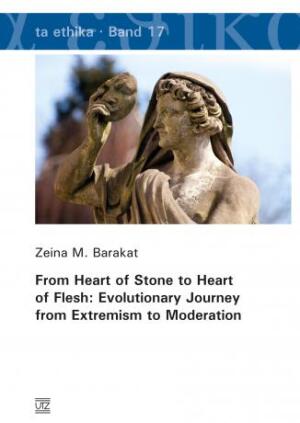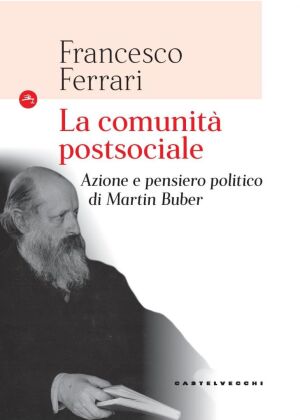
-
RIPAR 7: Encountering the Suffering of the Other. Reconciliation Studies amid the Israeli-Palestinian Conflict
Learn moreExternal linkdeF. Ferrari, M. Leiner, Z. M. Barakat, M. Sternberg, B. Hameiri (eds), Encountering the Suffering of the Other. Reconciliation Studies amid the Israeli-Palestinian Conflict, Vandenhoeck & Ruprecht, Göttingen, 2023
"I will give you a new heart and put a new spirit in you; I will remove from you your heart of stone and give you a heart of flesh" (Ezechiel 36:26). This biblical image, particularly significant for Jews, Christians, and Muslims, gives insight into the central issues of this book: how a greater readiness to reconcile can take place among individuals and groups who experience the "suffering of the other", even in the midst of a protracted conflict such as the Israeli-Palestinian one. This book offers a collection of essays written by the team members of a transdisciplinary DFG project between Jena University, Ben Gurion University, Tel Aviv University, and the Wasatia Academic Institute.
-
RIPAR 6: Reconciliation and Refugees. The Academic Alliance for Reconciliation Studies in the Middle East and North Africa I
Learn moreExternal linkdeD. Tacchini, Z. M. Barakat, I. AlDajani, M. Leiner (eds), Reconciliation and Refugees. The Academic Alliance for Reconciliation Studies in the Middle East and North Africa, Vandenhoeck & Ruprecht, Göttingen, 2022
The book continues the RIPAR series by focusing on the MENA region.This volume is about refugees and their multiple needs for reconciliation with themselves and others. In particular, feelings of grief and guilt over leaving home and parts of family behind, terrible experiences during their journey, conflicts with other refugees and with locals, loss of much of what gave life meaning and significance, and the difficulties of returning to a changed country, a home that may no longer feel like home, are the individual facets of this need for reconciliation.
Activities of the UN, international refugee assistance organizations, government agencies, municipalities, NGOs, religious and humanitarian organizations, are presented in this book. Numerous researchers from the countries of the MENA region describe not only successful activities, but also difficulties faced by numerous societies in the MENA region in maintaining their original welcoming attitude toward refugees. Similar to Germany, ultimately descending curves of refugee acceptance can also be drawn for countries such as Jordan, Turkey or Lebanon. However, the book also demonstrates how great tasks these countries have to cope with due to the influx of refugees and what efforts have also been made.In addition to authors from Morocco, Libya, Egypt, the Palestinian territories, Jordan, Lebanon and Turkey, the volume also includes texts from German, Greek, Italian and U.S. perspectives. The book shows a region ravaged by wars and conflicts, but it also presents initiatives and approaches to reconciliation.
-
RIPAR 5: Societies in Transition. The Balkans and South Caucasus between Conflict and Reconciliation
Learn moreExternal linkdeC. Rehrmann, R. Biermann, P. Tolliday (eds), Societies in Transition. The Balkans and South Caucasus between Conflict and Reconciliation, Vandenhoeck & Ruprecht, Göttingen, 2020.
Since the end of the Cold War, the collapse of the Soviet Union and the dissolution of Yugoslavia, the Mediterranean and Black Sea regions have been faced with multiple upheavals of interethnic violence, bloody secessions and ethnic cleansing. Up to the present, both regions are confronted with unresolved border, minority and security issues, matters of recognition, protracted traumata and claims for justice. After the fall of the iron curtain, simmering ethnic tensions turned into hot wars that created new states, new power-political hierarchies and a heritage of violence. Reaching back to the early 1990s, several international and national transitional justice measures have been applied to face these heritages and lay the foundations for a common future. For the former Yugoslavia, they range from broad criminal trials to a series of restorative justice mechanisms; in the North and South Caucasus they encompass numerous mediation measures and primarily restorative justice efforts.The present volume is concerned with strategies of conflict resolution and prevention subsumed under the concept of reconciliation. It aims at understanding the socio-emotional root causes of political cleavages and daily realities of (post-) conflict societies, especially regarding the impact of competing narratives and unprocessed pasts on exclusive identities and strategic political choices. Applying reconciliation theory, insights from collective memory and transitional justice to a series of selected field studies, it sheds light on the origins of interethnic violence, aims at finding explanations for the fact that many of the above-mentioned conflicts have become intractable and discusses the chances and challenges for transforming interests, emotions, perspectives, roles and identities between and within the respective societies.
-
RIPAR 4: The Former Soviet Union and East Central Europe between Conflict and Reconciliation
Learn moreExternal linkdeL. Gardner Feldman, R. Barash, S. Goda & A. Zempelburg (eds), Former Soviet Union and East Central Europe between Conflict and Reconciliation, Vandenhoeck & Ruprecht, Göttingen, 2018.
This volume examines the role of identity formation and stages of sequencing of the steps of reconciliation – which is an enduring rather than ad an ad hoc phenomenon. RIPAR 4 asks for both the challenges to it from the domestic and international systems and the actors involved, as well as for the role of »history,« »memory« and »remembrance« either as catalysts for or obstacles to reconciliation. The analyzing of the connection among the past, the present and the future in actual or prospective reconciliation embraces all these topics and questions.Influenced by the crisis in the former Sovjet Union following the March 2014 Russian annexation/integration of Crimea and the movement of Russian soldiers into Eastern Ukraine to aid Ukrainian separatists the essays in this volume were written in 2015. »Reconciliation« is a frequently ill-defined term. As an aspiration in this volume it encompasses three senses: an incipient, thin and minimal form amounting to passive, peaceful coexistence after enmity; a more elaborate, intermediate and engaged form that is captured by the term rapprochement; and a thick or fuller form denoting active friendship, empathy, trust, magnanimity and, ultimately, amity. Beyond the definitional goal, the volume addresses ten themes. Firstly, reconciliation is being questioned as a process and/ or a terminal condition. A view is made on the requirements for the transition from conflict to a reconciliatory process, and the obstacles to beginning a process of reconciliation. Its »soft« and »hard« expressions inter alia in emotional and political dimensions are also subject of the author's interest. The observations about conflict and cooperation offered in this volume wish to add significantly to the burgeoning literature of reconciliation. These essays demonstrate that we need a variety of disciplinary and theoretical perspectives to grapple with conflict and to promote reconciliation.
-
RIPAR 3: East Asia and Australia between Conflict and Reconciliation
Learn moreExternal linkdeP. Tolliday, D.C. Kim & M. Palme (eds), East Asia and Australia between Conflict and Reconciliation, Vandenhoeck & Ruprecht, Göttingen, 2015.
This third volume in the RIPAR series seeks to translate the Western concept of reconciliation into a universal and thus non-Western idiom. It unmasks some of the long-held and unresolved injustices in Australasia and the Asian-Pacific region. The volume focuses on promising examples of reconciliation processes and practices. These include comparative case study analyses e.g. from Cambodia, Myanmar, Sri Lanka, Korea, Indonesia, China, Japan and from New Zealand and Australia as well as the U.S. and Germany. The contributions demonstrate the potential of translating reconciliation into a non-Western idiom. Written by highly reputed experts from related research fields, the articles demonstrate how the past still exercises a pervasive influence over the present, and also point out the ways in which reconciliation may serve as a transformative tool in war and post-war societies as they make the transition to a renewed collective identity.A perennial challenge is to ensure that a tragic past does not determine the future. Asia, so often seen from a Eurocentric perspective as exotic, other and different, is now manifestly an economic and political powerhouse – shaped by the West, it is now playing its part in shaping the West. Asia’s destiny, its aspirations for just dealings among its neighbors, for the unmasking and resolution of long-held historical injustices from the past, for its sometimes tentative groping toward practices of reconciliation rather than conflict: all these efforts have consequences not just for the Asian nations but for the entire international community.
-
RIPAR 2: Societies in Transition. Sub-Saharan Africa between Conflict and Reconciliation
Learn moreExternal linkdeM. Leiner, M. Palme, & P. Stöckner (eds), Societies in Transition. Sub-Saharan Africa between Conflict and Reconciliation, Vandenhoeck & Ruprecht, Göttingen, 2014.
The second volume of the trans-disciplinary series “Research in Peace and Reconciliation” looks at ways of dealing with the past in Sub-Saharan Africa in recent decades and highlights the variety of peaceful strategies and processes.
It asks to what extent this variety fosters the development of alternative methods for the transformation of violent conflict.The contributions focus on different African countries and regions as Chad, Nigeria, Rwanda, Uganda, Namibia, Zimbabwe, and South Africa.
They take into account the influence of particular cultural contexts on processes of reconciliation. In doing so, they emphasize the importance of religions, rites, and tribal customs as well as the complex legacy of colonialism. They also look at the presentation of the topic in Western media.
Many thanks go to the Ernst-Abbe-Foundation (Jena) for its generous support of the publication.
-
RIPAR 1: Latin America between Conflict and Reconciliation
Learn moreExternal linkdeM. Leiner & S. Flämig (eds), Latin America between Conflict and Reconciliation, Vandenhoeck & Ruprecht, Göttingen, 2012.
In the last decades, many countries in Latin America underwent a transition from dictatorship to democracy. Truth commissions were an essential instrument of uncovering politically motivated crimes and serious human rights violations. However, in many cases truth came without justice, perpetrators were not held accountable, and the reparations policy was rather restrictive. The authors of this volume address the issue from a transdisciplinary perspective. On the one hand, they focus on a past that is shaped by fierce conflicts but also by attempts of fostering reconciliation in the middle of conflict. On the other hand, they address a reconciliation that still lies in the future and has to do with justice.Their first part offers a collection of case studies that approach the topics of reconciliation and conflict resolution during and in the aftermath of dictatorship and civil war from different perspectives and academic disciplines. Their second part is dedicated to experiences with reconciliation, conflict resolution and migration from a global and comparative perspective.Several contributors reflect the Hölderlin perspective of “reconciliation in the middle of dispute”. Other contributions aim to deepen our theoretical understanding of reconciliation by exploring the diversity of interpretations of the concept itself and elaborating the specific benefit of reconciliatory approaches for a sustainable peace. Two authors offer an in-depth analysis of particular conflicts, and one article deals with the influence of religion and culture on the social role of Brazilian migrants in Japan.
-
Reconciliation, Heritage and Social Inclusion in the Middle East and North Africa
Learn moreExternal linkIyad Muhsen AlDajani, Martin Leiner (eds), Reconciliation, Heritage and Social Inclusion in the Middle East and North Africa, Springer, Cham 2022.
This book, sponsored by the Academic Alliance for Reconciliation Studies in the Middle East and North Africa (AARMENA), focuses on peacebuilding, conflict transformation, and shifts toward approaching the reconciliation process as an inter-, trans- and multidisciplinary field. The research presented in the series focuses on the Middle East and North Africa, highlighting contributions by practitioners and scholars alike.
This volume showcases research on Heritage, Reconciliation, and Social Inclusion in the Middle East and North Africa. It reflects various inter-, trans- and multidisciplinary approaches applied both theoretically and practically, and explores conflict transformation and transitional shifts towards peacebuilding and reconciliation in the MENA (Middle East and North Africa) region.
The content is divided into five sections, the first of which examines the importance of reconciliation, peacebuilding, and social inclusion in contributions by experts in the field such as Martin Leiner, Wolfgang Dietrich, Mohammad Abu Nimer, Mohmmad Alshraideh and Iyad Aldajani. The second and third section explore digital humanities and the research sciences respectively, while the fourth turns to practices of heritage and reconciliation. The fifth section presents case studies on practices, conducted by expert researchers for heritage, reconciliation, and social inclusion in higher education.
-
Alternative Approaches in Conflict Resolution
Learn moreExternal linkdeM. Leiner & C. Schliesser (eds), Alternative Approaches in Conflict Resolution, Palgrave, London 2018.
This edited volume brings together alternative and innovative approaches in conflict resolution. With traditional military intervention repeatedly leading to the transformation of entire regions into zones of instability and violence (Afghanistan, Iraq, Libya, Syria), the study of alternative and less violent approaches to conflict resolution has become imperative. Four approaches are presented here: negotiation, religion and gender, reconciliation and forgiveness, and the arts. This volume contains the insights and experiences of fourteen internationally renowned scholars and practitioners from different contexts. Can forgiveness help heal relationships in post-apartheid South Africa? How can art assist dealing with ‘unrememberable’ events such as the genocide in Rwanda? What transformational resources do women offer in contexts of massive human rights violations? The aim here is twofold: to provide and encourage critical reflection of the approaches presented here and to explore concrete improvements in conflict resolution strategies. In its interdisciplinary and international outlook, this work combines the tried-and-tested approaches from conflict resolution experts in academia, NGOs and civil society, making it an invaluable tool for academics and practitioners alike.
-
Thüringen: braucht das Land Versöhnung?
Learn moreExternal linkdeM. O'Malley, M. Leiner, D. Summe, N. Knoepffler (eds), Thüringen: Braucht das Land Versöhnung?, Königshausen & Neumann, Würzburg 2017.
25 Jahre nach der Wiedervereinigung ist Versöhnung immer noch ein Thema. Das Unrecht der DDR beschäftigt die Zivilgesellschaft, die Wissenschaft und Landesregierungen. Der Thüringentag Philosophie 2015 bezieht sich auf die Suche nach Versöhnung in Thüringen aus zivilgesellschaftlicher und philosophischer Sicht. Dabei wird auch deutlich, dass Philosophen aus ihrer Tradition etwas zu aktuellen Debatten um Versöhnung beitragen können. Dieses Buch stellt den besonderen 'Jena-Ansatz' zur Versöhnung vor, der aus den Erfahrungen von Jenas eigenem Konflikt und seiner intellektuellen Geschichte hervorgeht.
-
Iyad Muhsen AlDajani - Internet Communication Technology (ICT) for Reconciliation Applied Phronesis Netnography in Internet Research Methodologies
Learn moreExternal linkdeAlDajani, Internet Communication Technology (ICT) for Reconciliation
Image: privatThe book explores Applied Phronesis in internet communication technology and Netnography application, introducing it on Facebook and YouTube usages. It defines two pillars for the research dynamics, “Episteme” and “Techne.” – the know-how, how-to, and the power dynamics. The “Episteme” explores the dynamics of reconciliation in the middle of conflict, Internet communication technologies for transformation, Moderation in Islam, online Deliberative Democracy. The second pillar, “Techne,” is explored through Internet communication technology for the advancement of reconciliation in the middle of a conflict. The book describes the Phronetic Approach in internet research in academic discourse adopting Phronesis “an Aristotelian concept and method defined by Bent Flyvbjerg,” and exploring Netnography for Kozinets, in Mixed-Method research design and applying methodological triangulation in research and testing the hypothesis using qualitative content analysis for Krippendorff, developing a methodological discourse for interdisciplinary research using internet communication technologies as part of understanding big-date, introducing Applied Digital Humanities.
-
Zeina M. Barakat - From Heart of Stone to Heart of Flesh: Evolutionary Journey from Extremism to Moderation
Learn moreExternal linkdeBarakat, From Heart of Stone to Heart of Flesh: Evolutionary Journey from Extremism to Moderation
Image: privatThis book examines the forces of human transformation from extremism to moderation. It analyzes the ethical indicators which determine making the choice of the path to take when one is faced with crucial decisions to make. The author focuses on three central values, namely, (a) moderation, reflecting balance in dealing with individual and group issues; (b) reconciliation, reflecting willingness to heal wounds and repair broken relationships by showing respect for the personal and collective narrative of the other, and feeling empathy and compassion for the pain and suffering of other and viewing the perspective of the other by putting oneself in the shoes of the other; (c) peace, coexisting with the other reflecting tolerance for the beliefs and views of other. These three concepts are linked together in consequential sequence with each leading to the other and eventually resulting prosperity and security.
-
Francesco Ferrari - La comunità postsociale. Azione e pensiero politico di Martin Buber
Learn moreExternal linkdeFerrari, La comunità postsociale. Azione e pensiero politico di Martin Bube
Image: privatNell’antitesi tra il collettivismo della società di massa – sostrato imprescindibile dei totalitarismi della prima metà del Novecento – e il suo individualismo atomizzato, Martin Buber coglie il segno più visibile della crisi dell’umano. Muovendo da qui, il volume ripercorre le diverse stazioni dell’agire e del pensiero politico del filosofo ebreo-tedesco: il suo difficile legame con il movimento sionista; l’amicizia con Gustav Landauer; il rifiuto del comunismo sovietico, cui egli contrappone la ricerca di un socialismo religioso e utopico; la resistenza spirituale buberiana negli anni del nazionalsocialismo; il suo instancabile impegno per il dialogo e la riconciliazione, tanto con la Germania post-hitleriana quanto all’interno del conflitto arabo-israeliano. Al tempo stesso, vengono ricostruite le invarianti strutturali del discorso politico-sociale buberiano: la comunità, la società, lo Stato.
-
Marcus Grohmann - Seeking Reconciliation in a Context of Coloniality. A Study of White People’s Approaches in a Multicultural South African church
Learn moreExternal linkSeeking Reconciliation in a Context of Coloniality (Book cover)
Picture: SpringerHow do white people handle their own dominance while striving for racial reconciliation in a concrete church context in Cape Town? Persisting effects of colonialism present a challenge to reconciliation efforts in settler-colonial societies. This book draws particular attention to the coloniality of knowledge in multicultural churches and denominations. Despite its ability to connect, English is here regarded as an obstacle to deeper cross-cultural understanding and appreciation.
The findings of the ethnographic study reveal how – motivated by a 'Hope for transformation from within' – racial integration often took precedence over equity.
Eurocentric leanings were found to be both acknowledged and downplayed. With the emphasis on inclusion and upliftment, the equally sought-after cultural diversity was limited by the inadvertent setting up of boundaries, particularly regarding language and theology.Grohmann concludes that the perceptible but not prominent mode of choosing
vulnerability, i.e. relating on other people’s terms, constitutes a promising alternative to conventional ways of tackling inequalities. This decolonial approach to reconciliation would have the potential to advance both equity and equality.Find the introduction for free hereExternal link.
-
Carolina Rehrmann - Der Zypernkonflikt. Eine sozialpsychologische Diskursanalyse
Learn moreExternal linkdeRehrmann, Der Zypernkonflikt
Image: SpringerSeit Jahrzehnten wird um eine Wiedervereinigung Zyperns gerungen. Mit sozialpsychologischer Expertise und interkultureller Sensitivität wird in diesem Buch das Ineinanderwirken von Politik und Alltagswelt der Mittelmeerinsel untersucht. In ihrer Analyse der zypriotischen Konfliktgeschichte, der mit ihr verbundenen Diskurse, Geschichtsbücher und Erinnerungspraktiken zeigt die Autorin die bis heute andauernde Strahlkraft nationaler Narrative auf, die einer Überwindung des Konfliktes im Wege stehen.
-
Amédée Turner, Davide Tacchini - Islam and Democracy. Voices of Muslims Among Us
Learn moreExternal linkdeTurner - Tacchini, Islam and Democracy. Voices of Muslims Among Us
Image: privatDuring the last six years, a team of scholars, researchers and religious leaders in Europe and the USA worked tirelessly, organising over seventy discussion groups that included members of the local Muslim communities. This volume presents for the first time the result of their work, developed in collaboration with the Anglican Observer to the United Nations. All discussions were designed to explore different views, rather than to reach a common position. The overall aim of the project is to provide a window on the rich and diverse world of “Western Islam”, by connecting directly with the everyday life of Muslim citizens in Britain, France, Italy, Germany, Spain, the United States and Canada.
-
André Zempelburg - Versöhnung im Judentum. Eine religionswissenschaftliche Perspektive auf den jüdischen Versöhnungsbegriff in Bezug auf Gott, den Nächsten, den Anderen und sich selbst
Learn moreExternal linkdeZempelburg, Versöhnung im Judentum Eine religionswissenschaftliche Perspektive auf den jüdischen Versöhnungsbegriff in Bezug auf Gott, den Nächsten, den Anderen und sich selbst
Image: privatVersöhnung wird aus jüdischer Perspektive genau dann notwendig, wenn der einzelne Mensch oder die Gruppe die gebotene Lebensordnung überschreitet. Dann gilt es Mittel und Wege an der Hand zu haben oder zu finden, um in diese zurückkehren zu können. Schon zur Zeit des Alten Israel wurde ein Tag im Jahr zu eben jenem Zweck formalisiert, der sogenannte „Tag der Versöhnung“ (Jom Kippur). Dieser Band untersucht im Kontext des jüdischen Versöhnungstages das Versöhnungsgeschehen in verschiedenen Relationen: Gott-Mensch, Mensch-Mensch und mit Blick auf die Gegenwart auch die Versöhnung des Menschen mit sich selbst. Auf dieser Reise durch mehr als 2500 Jahre altisraelitischer und jüdischer Religionsgeschichte werden u. a. die Voraussetzung des Menschen zur „Sünde“ genauso thematisiert wie seine Umkehr, wann aus dem Nächsten ein Anderer, sprich jeder Mensch, wird, und ob dem Täter im Namen der Opfer vergeben werden darf. „André Zempelburg ist mit seinem Werk gelungen, in die […] Tiefe des Versöhnungsbegriffs nicht nur einzuführen, sondern den Lesenden gleichsam hineinzuführen, in das, was Versöhnung nach jüdischem Verständnis heißen kann. Damit leistet er einen entscheidenden Beitrag in der interpersonalen wie politischen Versöhnungsforschung durch die wissenschaftliche Bearbeitung der über zweitausendjährigen jüdischen Reflexionsgeschichte zu diesem Thema und er zeigt darüber hinaus ein zentrales Moment des Judentums in seinem inneren Reichtum auf.“ Professor Dr. Dr. Bertram Schmitz, (Hannover/Jena 2018)
-
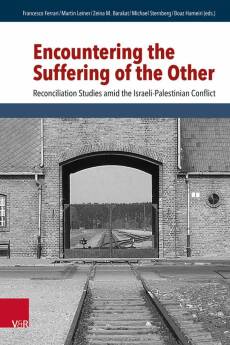
Image: Vandenhoeck & Ruprecht -
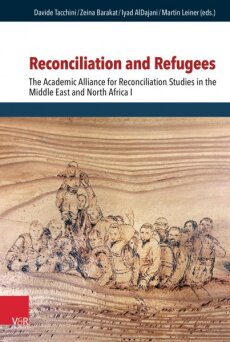
Image: V&R -

Image: Vandenhoeck & Ruprecht -
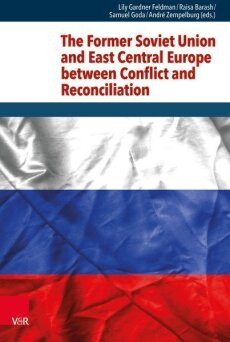
Image: Vandenhoeck & Ruprecht -

Image: Vandenhoeck & Ruprecht -
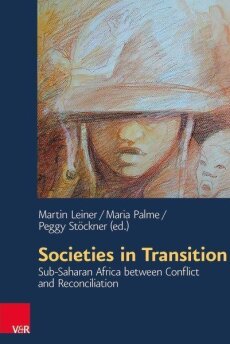
Image: Vandenhoeck & Ruprecht -
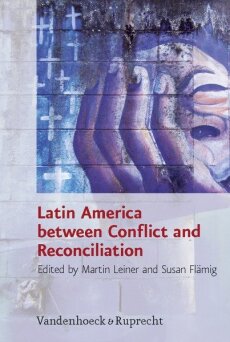
Image: Vandenhoeck & Ruprecht -

Image: Palgrave -
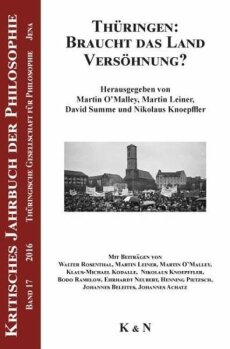
Image: Königshausen & Neumann -
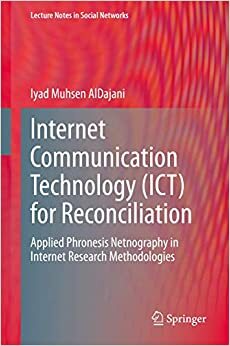
Image: privat -
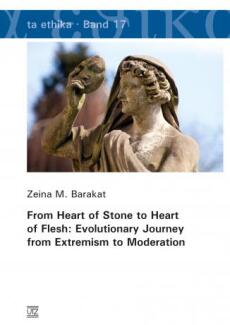
Image: privat -
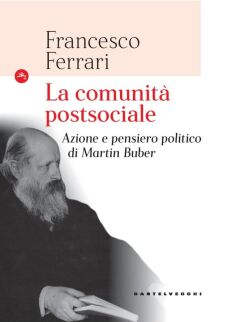
Image: privat -
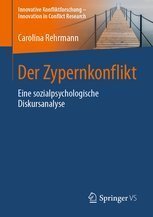
Image: Springer -
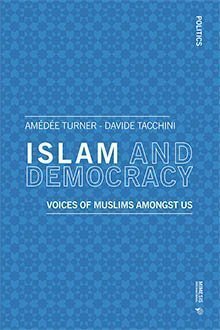
Image: privat -
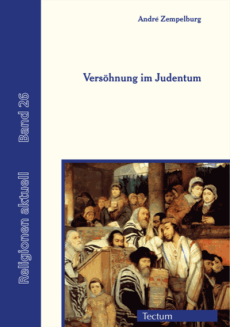
Image: privat -
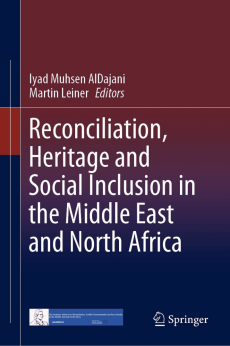
Picture: Springer -
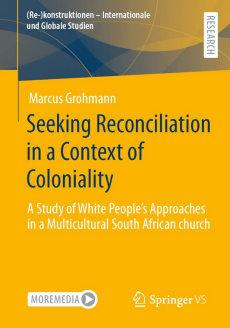
Picture: Springer
-
The Last Sermon
Dr. Iyad Al-Dajani took part in Jack Baxter's movie The Last SermonExternal link.
"THE LAST SERMON is a journey to uncover the truth. The film begins with a flashback to the horrific 2003 terrorist attack on a Tel Aviv blues bar called Mike’s Place. THE LAST SERMON then takes us straight into today’s headlines when filmmakers Baxter and Faudem – united for life by the tragedy of that terrible night – seek answers about the suicide bombers who almost murdered them. In doing so, the filmmakers hope to bridge the looming chasm between traditional and radicalized Muslims and non-Muslims worldwide, and to encourage peaceful co-existence among all peoples.
In the aftermath of the infamous April 2003 suicide bombing at Mike’s Place that killed three and injured dozens, including Baxter, the filmmakers made the award-winning documentary BLUES BY THE BEACH (2004). But they didn’t get to tell the entire story at that time.
THE LAST SERMON started in Jerusalem. Baxter and Faudem and their film crew traveled to Greece, Macedonia, Serbia, Hungary, Germany, Czech Republic, France, then on to England. At Refugee Camps and Mosques they interviewed, interacted and challenged Muslims and non-Muslims with the last words of Prophet Muhammad (PBUH): "There is no superiority of an Arab over a non-Arab, or a non-Arab over an Arab, or a White over a Black, or a Black over a White, except by righteousness and piety.”
THE LAST SERMON is shot in cinéma vérité style, inspired by the Maysles Brothers’ work, and informed by such groundbreaking films as D.A. Pennebaker’s DON’T LOOK BACK (1967) and Alex Gibney’s TAXI TO THE DARK SIDE (2007).
THE LAST SERMON is more than a whodunit or starry-eyed pursuit of an unsustainable peace plan. It’s about our common humanity and the quixotic pursuit of tolerance".
(from: https://www.thelastsermonmovie.com/External link)
Here is the longer version: https://vimeo.com/464224963External link
Here is the shorter version: https://vimeo.com/464223762External link -
Holy Lands
Film by Hiba SarroujExternal link - Ph.D student, Graduate Programme "Religion Conflict Reconciliation"
Two young people meet in New York. Heidi is from Tel Aviv, Chadi is from Tripoli. He speaks to her about his ongoing project at the Tripoli International Fair. She doesn't hesitate to join the venture as her parents were born there. Nada is a psychologist with a mixed religious background. She talks about how it is like to live in Lebanon.
